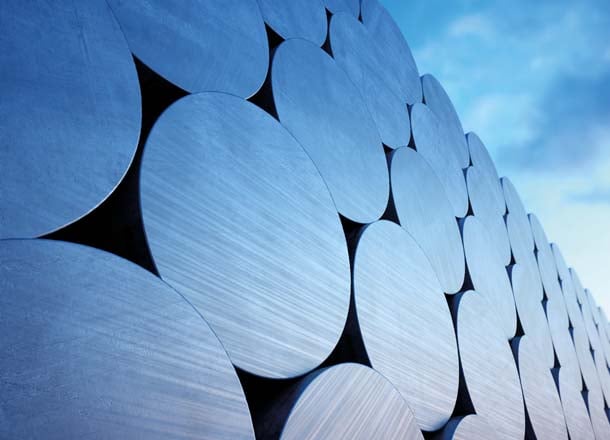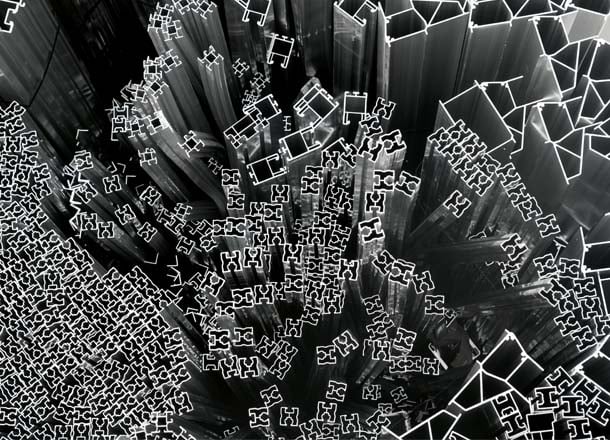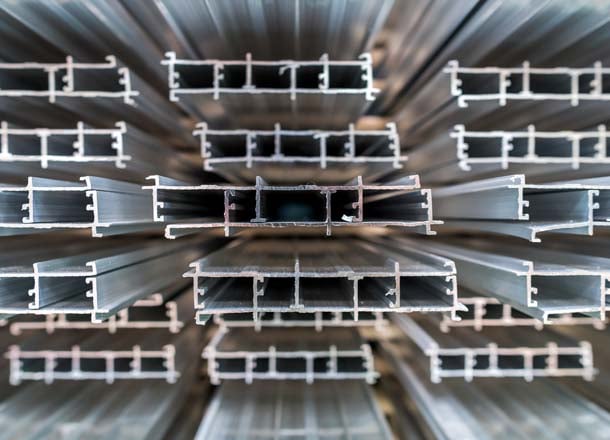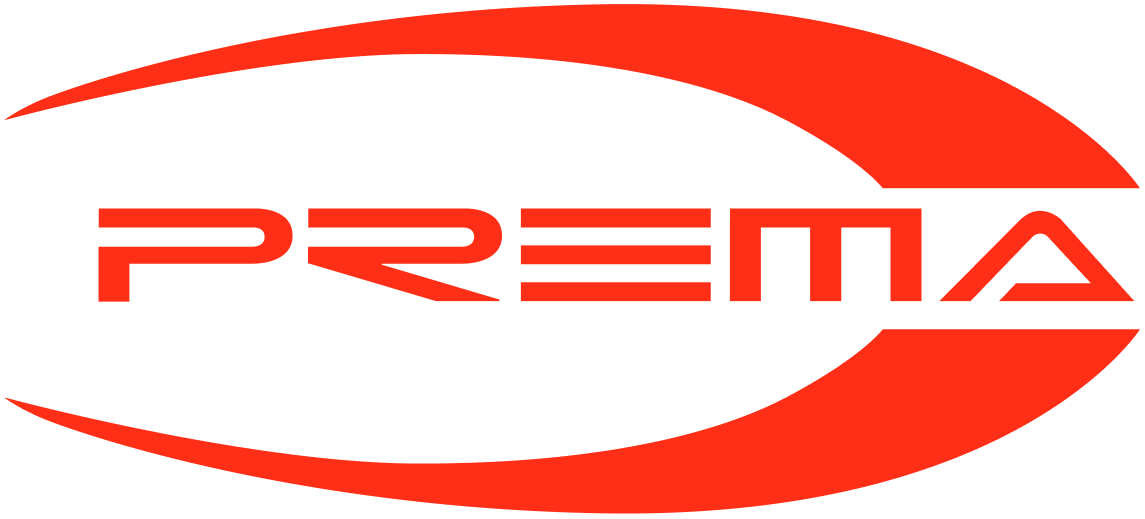The main ones are casting (a process required to produce wire rods for further processing), die casting (in aluminium foundries, aluminium is melted and cast in suitable moulds), lamination, extrusion, drawing and forging.
These complex processes require high precision and are generally followed by other mechanical processes such as cutting, grinding and bending, besides the other surface treatments including oxidisation and coating.
Since 2013 the industry has been part of the EU Emission Trading Scheme within the framework of climate change management policies, which introduces charges for energy-intensive European industries for the purchase of CO2 emission allowances.
The adoption of efficient technologies reduces emissions, thus reducing the money spent to purchase allowances.
Critical environmental conditions
In order to supply different automation solutions in the aluminium industry, high pressure compressed air is paramount.
The use of Mattei compressors, which generate energy savings up to 15% compared with screw compressors, is a key element in the pursuit of cost reduction and environmental sustainability.
And there’s more: in foundries, compressors must fulfil particular requirements in order to operate in challenging conditions, mainly due to high temperature (which can reach 90°C at the factory ceiling), the presence of dust, particulate and corrosive chemicals, as well as the presence of an intense magnetic field which may disrupt the operation of electronic devices.











